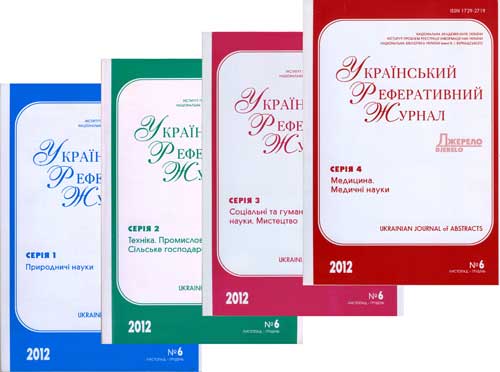РЕФЕРАТИВНА БАЗА ДАНИХ "УКРАЇНІКА НАУКОВА"
Abstract database «Ukrainica Scientific»
Бази даних
Реферативна база даних - результати пошуку
|
|
Пошуковий запит: (<.>ID=REF-0000743515<.>) | |||
|
Загальна кількість знайдених документів : 1 |
|||
Kalyuzhna N. The WTO toolkit in regulating interstate trade and economic cooperation = Інструментарій СОТ у регулюванні міждержавного торговельно-економічного співробітництва / N. Kalyuzhna, A. Khodzhaian, P. Nebotov // Наук. вісн. Нац. гірн. ун-ту. - 2020. - № 2. - С. 160-166. - Бібліогр.: 12 назв. - англ. Purpose. To determine the idea and efficiency of the WTO toolkit as a resource to prevent and regulate trade disputes arising in the process of interstate trade and economic cooperation. Methodology. Methods of analysis and synthesis, used to systemize data concerning inflow of notifications and applications, intended to regulate trade disputes within the WTO during 1995 - 2018, have become a methodological basis of the research. Formalization of criteria of the WTO toolkit efficient use is implemented with the help of mathematical modeling method; and a method of static analysis is applied to support a rising linear trend in the context of the dynamics of annual number of the WTO notifications during 1995 - 2018. Findings. The defining role by the WTO in the process of interstate trade and economic cooperation is substantiated. It is demonstrated that minimization of the number of interstate disputes in the trade sphere as well as their intensity degree is the objective of the WTO toolkit use. The idea of notification system and mechanism to regulate trade disputes as the key components of the toolkit preventing them within the WTO is considered. An efficiency criterion of the WTO notification system as the increased number of the applied notifications is identified; its execution during 1995 - 2018 is confirmed. Both static and dynamic criteria of the efficiency of the mechanism, resolving trade disputes by the WTO, are proposed. Prevailing execution of the static criterion is supported which speaks for the efficiency of the mechanism to regulate disputes as the tool of the WTO global trade. Nonexecution of the dynamic criterion is demonstrated which may be interpreted as a lack of cumulative effect by the accumulated practices intended to regulate trade disputes. Complex criterion of the WTO toolkit efficient use is proposed; its execution during 1995 - 2018 is analyzed. Priority tendencies to regulate interstate trade and economic cooperation on the part of the WTO are determined. Originality. For the first time, methodological approach to evaluate efficiency of the WTO toolkit as a resource to regulate interstate trade and economic cooperation has been proposed. The approach is based upon the following: substantiation of such efficiency criteria use for trade protection as a notification system and a mechanism to regulate trade disputes by the WTO; formation of a complex efficiency criterion to apply for regulation of trade disputes by the WTO; formulation of complex criterion of efficient use of the WTO tools; determination of quantative equivalents of the proposed criteria, and analysis of their execution during 1995 - 2018. Practical value. The proposed methodological approach may be applied to evaluate efficiency of the WTO toolkit concerning the global trade regulation as for the prevention and negotiation of interstate trade disputes. Індекс рубрикатора НБУВ: У584.30-651 Рубрики: Шифр НБУВ: Ж16377 Пошук видання у каталогах НБУВ Додаткова інформація про автора(ів) публікації: (cписок формується автоматично, до списку можуть бути включені персоналії з подібними іменами або однофамільці)
| |||
| Національна бібліотека України імені В. І. Вернадського |
 |
| Відділ наукового формування національних реферативних ресурсів |
 |
| Інститут проблем реєстрації інформації НАН України |
Всі права захищені © Національна бібліотека України імені В. І. Вернадського